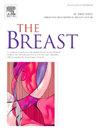乳腺癌幸存者的身体形象:治疗引起的更年期和生育问题的年龄调节效应
IF 7.9
2区 医学
Q1 OBSTETRICS & GYNECOLOGY
引用次数: 0
摘要
目的激素受体阳性乳腺癌幸存者接受内分泌治疗面临显著的身体形象挑战。这项研究旨在研究激素受体阳性的乳腺癌幸存者接受内分泌治疗和未受影响的健康女性之间身体形象的差异。具体来说,我们调查了治疗引起的绝经期症状和生育问题是否介导了乳腺癌生存率和身体形象之间的关系。此外,我们探讨了年龄是否会调节这些中介效应,评估这些间接关系的强度在不同年龄组之间是否存在差异。方法121例激素受体阳性乳腺癌幸存者和114例健康女性分别完成社会人口学问卷、身体形象量表(BIS)、更年期评定量表(MRS)和生殖问题量表(RCS)。乳腺癌幸存者还填写了一份医疗数据问卷。结果与健康女性相比,激素受体阳性的乳腺癌幸存者报告了更高水平的负面身体形象、更年期症状和生育问题。有调节的中介分析显示,更年期症状和生育问题都介导了乳腺癌和身体形象之间的关系,年龄调节了这些关系。间接影响在年轻女性中更强,随着年龄的增长而减弱。通过更年期症状的中介作用对躯体和泌尿生殖器症状尤为明显。结论在激素受体阳性的年轻乳腺癌幸存者中,治疗引起的绝经期症状和生育问题在塑造身体形象方面具有重要作用。作为康复过程的一部分,应该向这些年轻女性提供有针对性的信息和干预措施,帮助她们应对与治疗相关的副作用,并保持积极的身体形象。本文章由计算机程序翻译,如有差异,请以英文原文为准。
Body image in breast cancer survivors: Age-moderated effects of treatment-induced menopause and fertility concerns
Purpose
Hormone receptor-positive breast cancer survivors undergoing endocrine therapy face significant body image challenges. This study aimed to examine differences in body image between hormone receptor-positive breast cancer survivors receiving endocrine therapy and unaffected, healthy women. Specifically, we investigated whether treatment-induced menopausal symptoms and fertility concerns mediate the relationship between breast cancer survivorship and body image. Additionally, we explored whether age moderates these mediation effects, assessing whether the strength of these indirect relationships varies across different age groups.
Methods
121 hormone receptor-positive breast cancer survivors and 114 healthy women completed a sociodemographic questionnaire, the Body Image Scale (BIS), the Menopausal Rating Scale (MRS), and the Reproductive Concerns Scale (RCS). Breast cancer survivors also completed a medical data questionnaire.
Results
Hormone receptor-positive breast cancer survivors reported significantly higher levels of negative body image, menopausal symptoms, and fertility concerns compared to healthy women. Moderated mediation analyses revealed that both menopausal symptoms and fertility concerns mediated the relationship between breast cancer and body image, with age moderating these relationships. The indirect effects were stronger among younger women and diminished with age. The mediating effect through menopausal symptoms was particularly pronounced for somatic and urogenital symptoms.
Conclusions
These results highlight the significant role of treatment-induced menopausal symptoms and fertility concerns in shaping body image among young hormone receptor-positive breast cancer survivors. These young women should be provided with targeted information and interventions that will help them cope with treatment-related side effects and maintain positive body image as part of the recovery process.
求助全文
通过发布文献求助,成功后即可免费获取论文全文。
去求助
来源期刊

Breast
医学-妇产科学
CiteScore
8.70
自引率
2.60%
发文量
165
审稿时长
59 days
期刊介绍:
The Breast is an international, multidisciplinary journal for researchers and clinicians, which focuses on translational and clinical research for the advancement of breast cancer prevention, diagnosis and treatment of all stages.
 求助内容:
求助内容: 应助结果提醒方式:
应助结果提醒方式:


